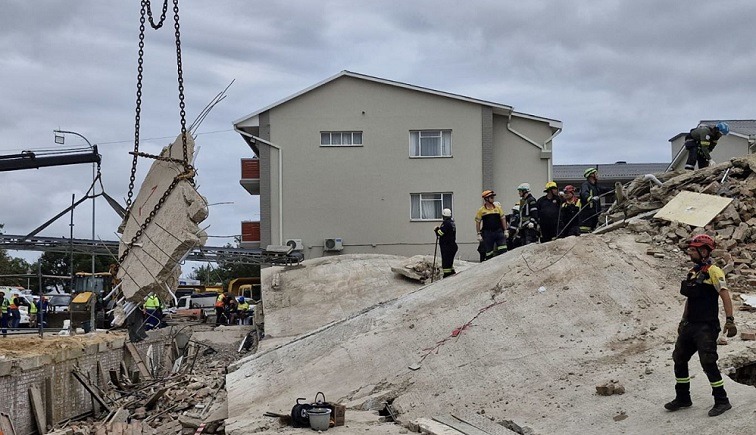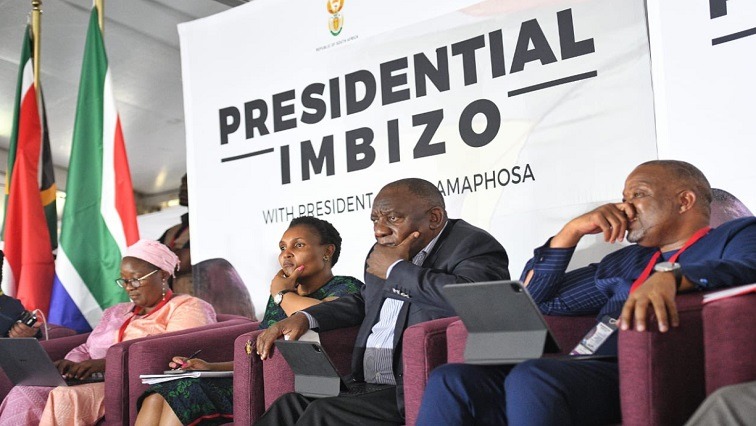The frequent removal of mayors in coalitions could be a thing of the past if a proposal by the official opposition is backed by political parties.
This comes as it has proposed a limit on the motions of no confidence to remove a mayor, deputy mayor and speaker.
Civil society has joined political parties in proposing a raft of changes in the law to prevent unstable coalitions.
In a position paper released on Friday, My Vote Count said after the 2021 local government elections one in every three municipalities is governed by a coalition.
This comes after the Democratic Alliance tabled a private members bill that proposes a limit on motions of no confidence to remove a mayor.
The African National Congress (ANC) has also said it wants the party with most of the votes to lead a coalition government.
Political analysts also believe the bill may regulate coalitions. However, it may play a role in reducing the influence of smaller parties to become kingmakers.
Prof. Dirk Kotz of Unisa said the private members bill may limit the use of motions of no confidence for political proposes. It would also stop smaller parties from switching political sides in order to get influential positions in councils.
This bill is important and it addresses a specific issue that many people regard as one of the main causes of instability in several local government councils, especially some of the metros and councils outside the metros.
What it does is that a motion of no confidence can only be introduced once in 12 months at local government for the mayor, deputy mayor and speaker. These are positions that are elected positions in councils and what it means is that it cannot be used simply for political purposes. That means there is less of a motivation, especially for the smaller parties to move from one side to the other side so that they can get some seats in the process. We have seen it with some of the smaller parties, said Kotz.
Proffesor Bheki Mngomezulu, from the Nelson Mandela University, said it was true that regular motions lead to unstable coalitions in municipalities.
There were motivations behind these motions.
He said, however, the bill must be in line with the Constitution.
It is true that repeated motions lead to instability. But a few issues must be considered. Firstly, what leads to those motions? Are the incumbents delivering on their mandates? If they dont, would the cap in such motions not negatively affect service delivery thus placing communities at a disadvantage? If the proposal is genuine, it must consider all factors. Lastly, the bill must not be in contravention of the constitution, said Mngomezulu.
But in its private members bill, the Municipal Structures Amendment Bill , the DA said it wants motions of no confidence in a mayor to be limited to only once a year.
However, for the motion to be debated the speaker of council must appoint an independent panel to determine the validity of the motion.
Joel Bergman of My Vote Counts said they have looked at proposals by both the ANC and the DA on coalitions.
Between 2000 and 2016, the number of municipalities that produced hung councils in the Local Government Elections hovered between the high 20s and low 30s. This shifted dramatically in 2021, which produced 66 hung councils. Continuing the trend, today, roughly one in every three municipalities is governed by a coalition and several polls suggest that coalitions will emerge provincially and nationally after the May 29 general elections, said Bergman.
Our position does not just focus on stability, but broadly on fostering a democracy that is more accountable, transparent, and serves the interests of the public.
In the Municipal Structures Amendment Bill that was tabled in Parliament by the DA it said it wants motions of no confidence in the mayor, deputy mayor, speaker and whip to be limited to one motion a year.
This will curb the problem of opposition parties ganging up against parties in power and remove them through frivolous motions.
There has been constant changes in the Gauteng metros and other municipalities since the local government elections.
In Tshwane, Cilliers Brink is the third mayor since the 2021 elections.
Nkosiphindile Xhakaza of the ANC became the third mayor in Ekurhuleni in three years.
In Johannesburg Kabelo Gwamanda is still keeping his position a year later. He succeeded his colleague from Al-Jama-ah Thapelo Amad who was removed a year ago after the ANC and the EFF removed then DA mayor Mpho Phalatse.
In eThekwini Mxolisi Kaunda survived the motion to remove him from office after smaller parties voted with the ANC.
But infighting in other municipalities has led to unstable coalitions.
Deputy President Paul Mashatile said a few weeks ago they wanted a framework on coalitions to prevent the chaos in mun










